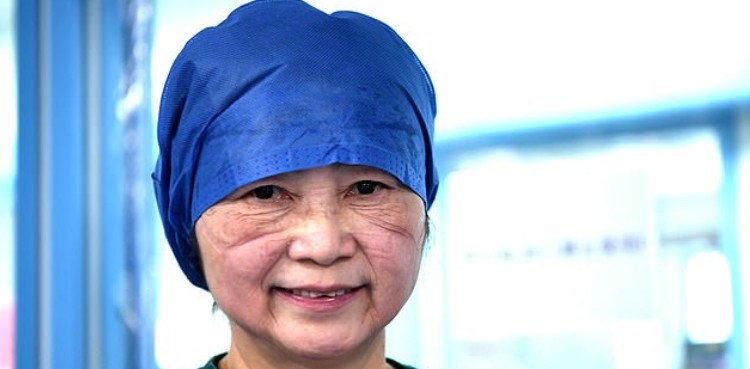Leading Chinese COVID-19 expert Professor Li Lanjuan claimed that the novel coranavirus can survive for 20 years in temperatures of minus 20 degrees celsius.
Professor Li Lanjuan made the comments at a meeting in in Hangzhou, eastern China. She said that the virus could survive for a few months in minus four degrees celsius and added that the novel coronavirus is ‘particularly not afraid of coldness.
“This explains why the virus has been discovered several times in seafood markets which had plenty of frozen food. It is possible for the virus to be transported across countries.”
The COVID-19 urged Chinese authorities to strengthen the inspection of imported frozen food products, including salmon, to prevent the further spread of the infection, Mail Online reported.
She warns people not to touch raw fish or meat to prevent virus.
Feng Zhaolu, a researcher from China’s CDC, advised residents to wash their hands before and after handling uncooked food and use separate chopping boards.
The expert said in a press briefing today: ‘Food and water need to be heated and cooked thoroughly. Fruits should be consumed without the skin. ‘Regularly-used tableware can be disinfected by steaming them for 15 minutes,’ he added.
Despite the warnings, the officials said that they have no evidence proving that people would be infected with COVID-19 from eating seafood.
The expert’s advice comes as China’s National Health Commission has ordered all wet market workers to wear face masks and gloves.
The health authority introduced a new set of anti-virus guidelines for the public today in a press conference.
The rules have required workers in ‘high-risk’ places – such as wet markets and theatres – wear face coverings to prevent the virus spreading.
Zhang Yong of the Chinese Center for Disease Control and Prevention (CDC) said the strain of the virus spreading in Beijing ‘is older than the virus currently circulating in Europe’.
Zhang raised the possibility of the virus lurking in imported frozen food or in the wholesale market itself, resulting in similarities to older strains.
But scientists cautioned against making early conclusions on the Beijing cluster.
Ben Cowling, a public health expert at the University of Hong Kong, said ‘it is possible that the virus now causing an outbreak in Beijing had travelled from Wuhan to Europe and now back to China.’
But he said the first case has not yet been identified and it may be too late to find out how this outbreak started.
Francois Balloux of University College London said that based on the data shared, there had been local transmission for some time before the outbreak was identified.
Wu Zunyou, chief epidemiology expert at the CDC, had previously said the virus found in Beijing was similar to European strains.
Wu said the strain did not originate from the Chinese capital. ‘It must be some people or goods outside of the city that carried it into the market,’ Wu said in a state television interview aired on Friday.
‘It’s unclear who, or what kind of goods, had brought the virus into Beijing.’
Food wholesalers and retail stores in Beijing have stepped up testing on products including meat and seafood since the outbreak began.
State media reported earlier this week that the virus had been detected on chopping boards used to handle imported salmon at the market.
Official media has already opened fire on the ‘sinful’ salmon industry in Norway, and Beijing supermarkets have removed salmon from their shelves after officials claimed the outbreak could have come from Europe.


Leave a Comment